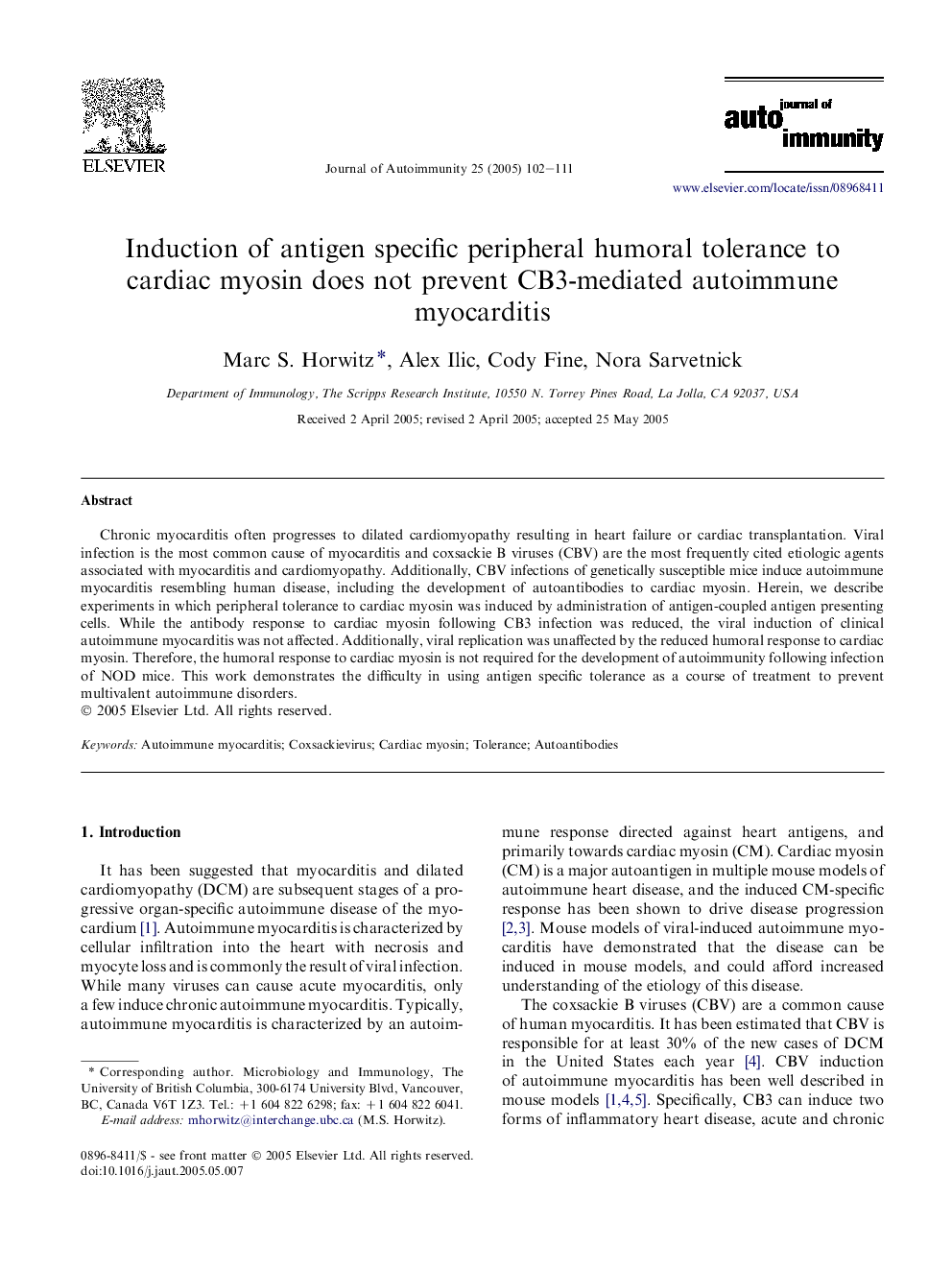| Article ID | Journal | Published Year | Pages | File Type |
|---|---|---|---|---|
| 9267819 | Journal of Autoimmunity | 2005 | 10 Pages |
Abstract
Chronic myocarditis often progresses to dilated cardiomyopathy resulting in heart failure or cardiac transplantation. Viral infection is the most common cause of myocarditis and coxsackie B viruses (CBV) are the most frequently cited etiologic agents associated with myocarditis and cardiomyopathy. Additionally, CBV infections of genetically susceptible mice induce autoimmune myocarditis resembling human disease, including the development of autoantibodies to cardiac myosin. Herein, we describe experiments in which peripheral tolerance to cardiac myosin was induced by administration of antigen-coupled antigen presenting cells. While the antibody response to cardiac myosin following CB3 infection was reduced, the viral induction of clinical autoimmune myocarditis was not affected. Additionally, viral replication was unaffected by the reduced humoral response to cardiac myosin. Therefore, the humoral response to cardiac myosin is not required for the development of autoimmunity following infection of NOD mice. This work demonstrates the difficulty in using antigen specific tolerance as a course of treatment to prevent multivalent autoimmune disorders.
Related Topics
Life Sciences
Immunology and Microbiology
Immunology
Authors
Marc S. Horwitz, Alex Ilic, Cody Fine, Nora Sarvetnick,
